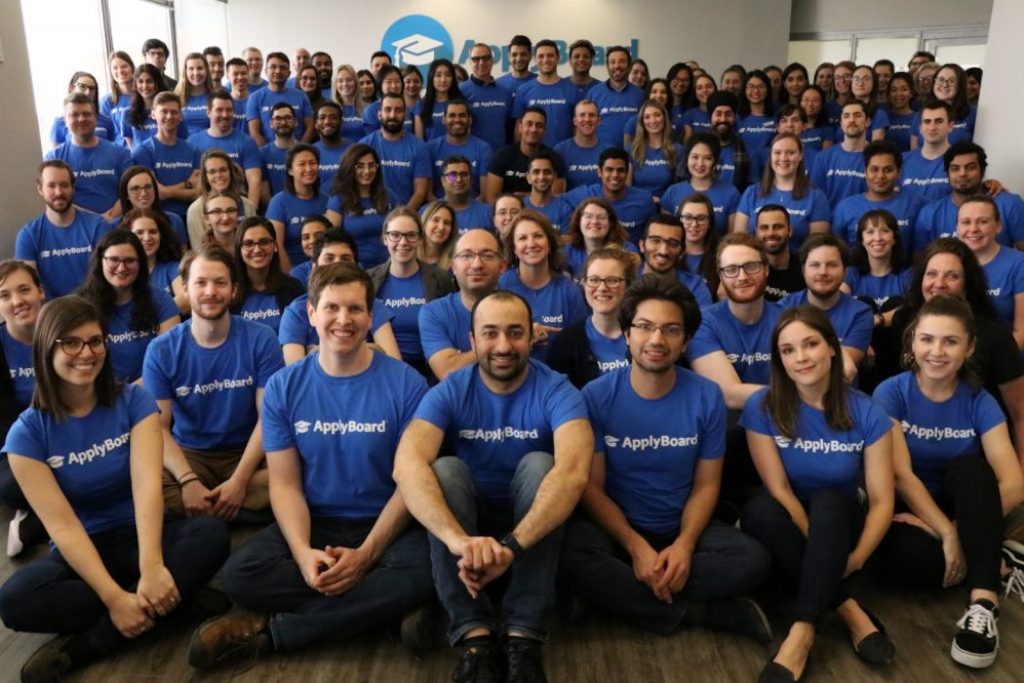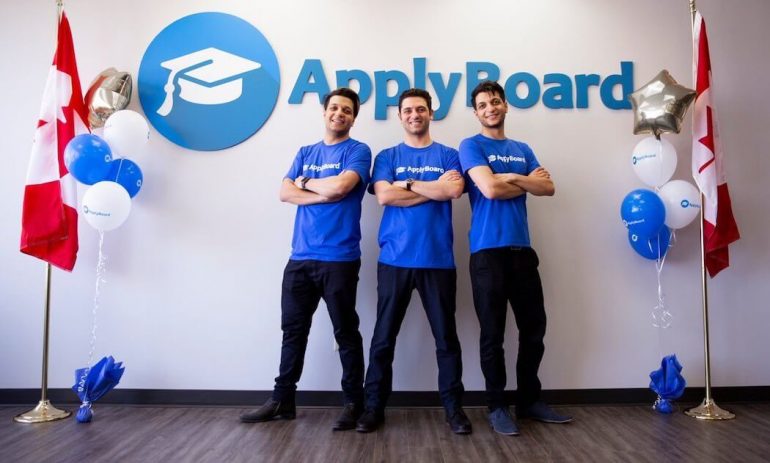ApplyBoard, a Kitchener-Waterloo-based AI-enabled recruitment platform helping international students apply to post-secondary education in North America, recently closed a $55 million CAD Series B.
“[We were] able, not only to solve this problem that was untackled for a long time, but also solve it so good that [we] receive huge growth.”
The sizable raise comes just shy of a year after the company closed its $17 million Series A in June 2018. This current round brings ApplyBoard’s overall funding to $72 million CAD, to date. The round was led by Anthos Capital, a California-based investment firm that looks to invest in growth-stage companies, and saw participation from existing investor Artiman Ventures, the early stage venture fund based in Silicon Valley that led ApplyBoard’s Series A.
Martin Basiri the co-founder and CEO of ApplyBoard told BetaKit that the company’s rapid growth precipitated the second raise so shortly after it’s Series A. He noted, after that first round ApplyBoard had a lot of interest and opportunity to raise more capital, but chose to focus on company growth before deciding to bring on more investors. And over a ten month period, ApplyBoard saw 13 times growth in revenue, equating to 1200 percent growth overall.
ApplyBoard, calling itself a platform-as-a-service (PaaS) for international students, has shown consistent growth over the past couple years, with the company noting 10 percent growth from 2017 to 2018, reaching a total of 543,977 students.
“We nailed it – of course, then it was we had a lot of opportunity [to raise again],” Martin explained. He also noted the Series B was so oversubscribed “that we could basically do any sized deal we wanted to.”
First-hand experience
Launched in 2015, ApplyBoard is run by Martin and his two twin brothers Meti Basiri (CMO), and Massi Basiri (COO). All have first-hand experience of the university and college application process for international students. Originally from Iran, the three brothers moved to Canada for post-secondary education. Martin, being the oldest came over first in 2010 to study engineering at the University of Waterloo.
“The process took me a year and a half [and] you just figured out how to do it,” Martin said. Then I helped my brothers to come…so they came and they went through the same process, but it was easier because I had done it once.”
From there the three brothers started offering guidance to others going through the same process, and after trying their hand at three different entrepreneurial projects, decided they wanted to “tackle this big problem.”
“Makes a very hard and confusing application process, a very seamless application process.”
They created the company with the goal of making education accessible for all students “regardless of their nationality, location, or educational background.” Martin explains ApplyBoard like a combination of Expedia and TurboTax. Expedia-esque – a marketplace for schools; TurboTax-esque – making “a very hard and confusing application process very seamless.”
ApplyBoard essentially offers a way for students around the world to find and apply to universities, colleges, and high schools in Canada and the United States. AI algorithms then match students to the programs they are most qualified for based on their academic background, desired course of study, and financial means.
The platform also makes it easier to submit additional documents as well as obtain required visas. ApplyBoard reviews and processes each application, sending only complete and qualified ones to its partner schools. The company stated that with its vetting system, students have a 95 percent chance of receiving an offer letter to their program of choice.

Since launching, the company’s quick growth has caught the attention of investors and members of the tech community. It has seen support from Communitech, Velocity, which gave it its first office space, and the Accelerator Centre, which helped the founders with their Startup Visa Program visas as well as funding; ApplyBoard has also seen investments from 500 Startups and Silicon Valley accelerator Plug and Play.
“I think one of the things that fascinated investors about us was, ‘how come these people, who no one knows, are able not only to solve this problem that was untackled for a long time, but also solve it so good that they receive huge growth, very rapidly growing’,” Martin explained. “The majority of our people are international students ourselves, so we dealt with it, we understood, and our product really works.”
“The majority of our people are international students ourselves, so we dealt with it, we understood, and our product really works.”
What was a team of 13 employees in 2016, and around 70 people in early 2018, has grown to more than 180 people today, spanning Kitchener, Beijing, Nepal, Vietnam, Philippines, and India. The speed of its growing team prompted ApplyBoard to move offices twice within the past couple years, with the company officially opening its 30,000 square foot headquarters in Kitchener, in April.
ApplyBoard has no plans of slowing down, Martin told BetaKit, calling the company the number one player in the world in terms of the Canadian market. With its Series B funding, the company plans to hire more than 100 employees over the next year for its Kitchener and international offices, as it pursues accelerated expansion into new markets. It also plans to use the funding to further develop the AI behind its matching platform.
“[The funding] also gives us more room to do more bold moves and also a long-term view, because when you have more money you can do initiatives that you may not necessarily see the result in one year, but you can see the result in three years,” Martin stated.
To date, ApplyBoard’s platform has partnered with more than 1000 schools in Canada and the US, and has had more than 45,000 international students apply through its platform.
“We get a lot of energy from our customers, so we always like to make sure that people know that this is not just [that] we thought ‘let’s do some startup and do some software’,” Martin said. “We wanted to solve a real big problem, which is international education.”


